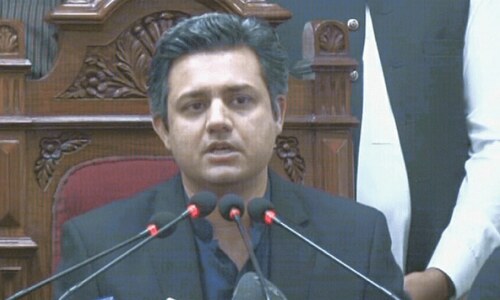ISLAMABAD, Sept 4: Collection of increased gas security fee from the domestic consumers was challenged in the Supreme Court on Wednesday.
Raja Saimul Haq Satti, who is a practicing lawyer at the Rawalpindi Bar Association and also served as the joint secretary of the High Court Bar Association, Rawalpindi requested the Supreme Court to order the respondents to withdraw the increase.
He named petroleum ministry, chairman Oil and Gas Regulatory Authority (Ogra), chairmen of the Sui Southren Gas Company (SSGC) and the Suit Northern Gas Pipelines (SNGPL) and the chairman Federal Board of Revenue (FBR) as respondents.
The petitioner explained the two gas utilities - SNGPL and SSGCL - have increased security fee for all domestic consumers by 200 per cent with immediate effect to generate Rs13 billion this year.
The security deposit for domestic consumers has been increased from Rs1,500 to Rs4,500 that would be recovered in six monthly installments.
The two companies have already charged first installment of Rs448 from all consumers during the current billing month while the remaining amount would be recovered in subsequent five billing months.
It is expected that the decision would yield about Rs9 billion to SNGPL and Rs5 billion to SSGCL.
He pleaded that Ogra was set up by the government under the Oil and Gas Regulatory Authority Ordinance on March 28, 2002 to foster competition, increase private investment and ownership in the petroleum industry, protect the public interest while respecting individual rights and provide effective and efficient regulations, provide working environment where the interests of all stakeholders were protected.
But practically the consumers are being made scapegoat by the authority.
The reason for the increase in gas security being extended by the respondents, the petition said, was to cover the unaccounted for gas (UFG) losses and annual debt.
He pleaded the gas companies were also at liberty to charge a reconnection fee of Rs400 if the gas supply had been disconnected due to non-payment of bills.
The petition argued that the superior judiciary had always deprecated the practice to extend benefits to a special segment of the society by depriving the most depressed segment of the society.
Therefore, the acts or omissions of the respondents are discriminatory, unwarranted, unconstitutional and illegal.













































Dear visitor, the comments section is undergoing an overhaul and will return soon.